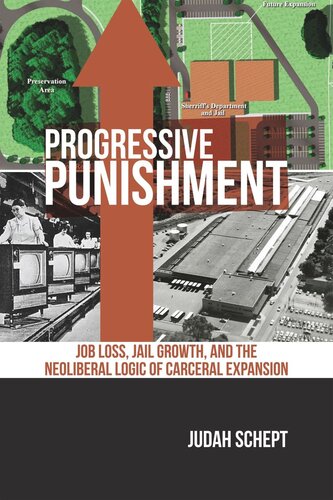

Most ebook files are in PDF format, so you can easily read them using various software such as Foxit Reader or directly on the Google Chrome browser.
Some ebook files are released by publishers in other formats such as .awz, .mobi, .epub, .fb2, etc. You may need to install specific software to read these formats on mobile/PC, such as Calibre.
Please read the tutorial at this link: https://ebookbell.com/faq
We offer FREE conversion to the popular formats you request; however, this may take some time. Therefore, right after payment, please email us, and we will try to provide the service as quickly as possible.
For some exceptional file formats or broken links (if any), please refrain from opening any disputes. Instead, email us first, and we will try to assist within a maximum of 6 hours.
EbookBell Team

4.3
88 reviewsWinner, 2017 American Society of Criminology's Division on Critical Criminology and Social Justice Best Book Award
The growth of mass incarceration in the United States eludes neat categorization as a product of the political Right. Liberals played important roles in both laying the foundation for and then participating in the conservative tough on crime movement that is largely credited with the rise of the prison state. But what of those politicians and activists on the Left who reject punitive politics in favor of rehabilitation and a stronger welfare state? Can progressive policies such as these, with their benevolent intentions, nevertheless contribute to the expansion of mass incarceration?
In Progressive Punishment, Judah Schept offers an ethnographic examination into the politics of incarceration in Bloomington, Indiana in order to consider the ways that liberal discourses about therapeutic justice and rehabilitation can uphold the logics, practices and institutions that comprise the carceral state. Schept examines how political leaders on the Left, despite being critical of mass incarceration, advocated for a “justice campus” that would have dramatically expanded the local criminal justice system. At the root of this proposal, Schept argues, is a confluence of neoliberal-style changes in the community that naturalized prison expansion as political common sense among leaders negotiating crises of deindustrialization, urban decline, and the devolution of social welfare. In spite of the momentum that the proposal gained, Schept uncovers resistance among community organizers, who developed important strategies and discourses to challenge the justice campus, disrupt some of the logics that provided it legitimacy, and offer new possibilities for a non-carceral community. A well-researched and well-narrated study, Progressive Punishment offers a novel perspective on the relationship between liberal politics, neoliberalism, and mass incarceration.
Winner, 2017 American Society of Criminology's Division on Critical Criminology and Social Justice Best Book Award
The growth of mass incarceration in the United States eludes neat categorization as a product of the political Right. Liberals played important roles in both laying the foundation for and then participating in the conservative tough on crime movement that is largely credited with the rise of the prison state. But what of those politicians and activists on the Left who reject punitive politics in favor of rehabilitation and a stronger welfare state? Can progressive policies such as these, with their benevolent intentions, nevertheless contribute to the expansion of mass incarceration?
In Progressive Punishment, Judah Schept offers an ethnographic examination into the politics of incarceration in Bloomington, Indiana in order to consider the ways that liberal discourses about therapeutic justice and rehabilitation can uphold the logics, practices and institutions that comprise the carceral state. Schept examines how political leaders on the Left, despite being critical of mass incarceration, advocated for a “justice campus” that would have dramatically expanded the local criminal justice system. At the root of this proposal, Schept argues, is a confluence of neoliberal-style changes in the community that naturalized prison expansion as political common sense among leaders negotiating crises of deindustrialization, urban decline, and the devolution of social welfare. In spite of the momentum that the proposal gained, Schept uncovers resistance among community organizers, who developed important strategies and discourses to challenge the justice campus, disrupt some of the logics that provided it legitimacy, and offer new possibilities for a non-carceral community. A well-researched and well-narrated study, Progressive Punishment offers a novel perspective on the relationship between liberal politics, neoliberalism, and mass incarceration.